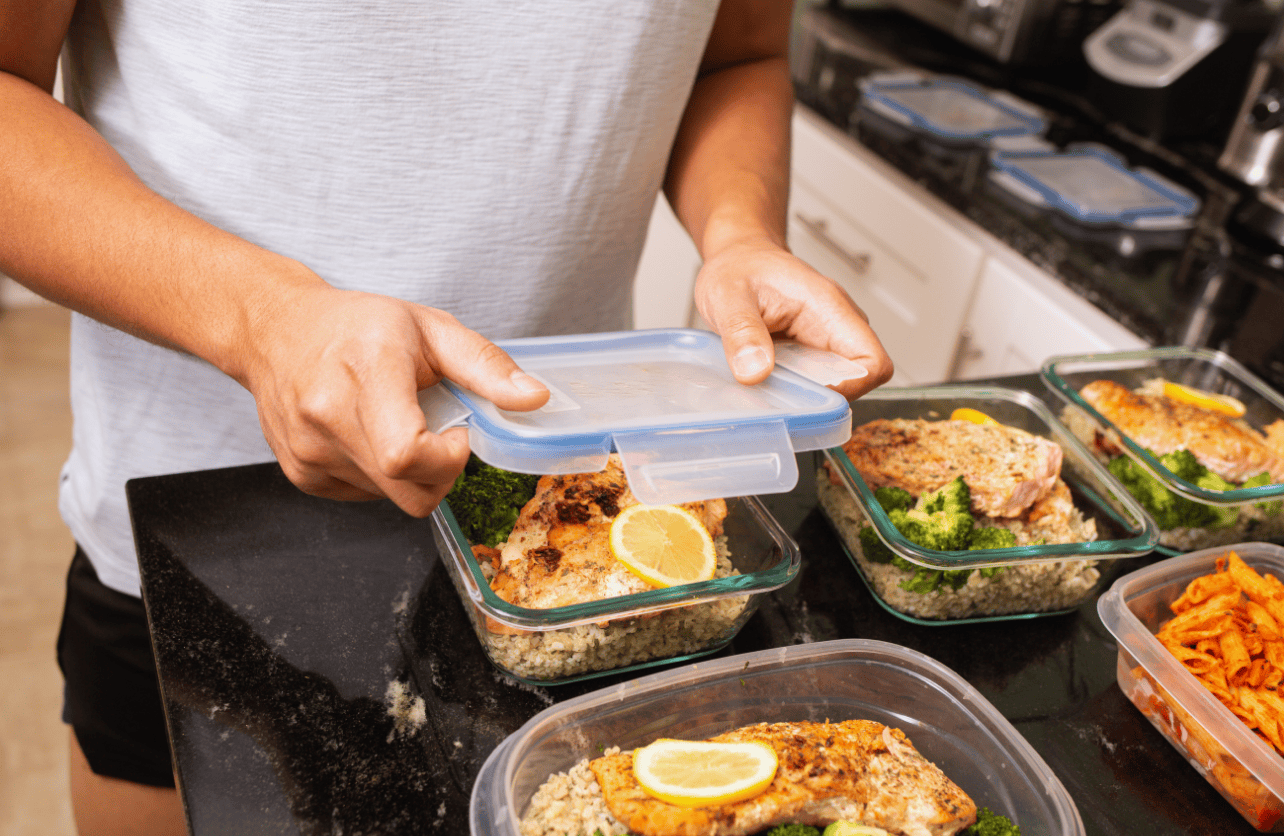Ideal Carb Timing for Working Out

If you’ve ever felt sluggish during a workout or struggled to recover afterward, your carb timing might be the culprit. Carbohydrates are the body’s primary fuel source, especially for high-intensity and endurance exercises. But it’s not just about how many carbs you eat—it’s about when you eat them. Strategic carb timing can enhance your energy levels, improve performance, and speed up recovery, helping you get the most out of every workout.
Why Carb Timing Matters
Carbs are broken down into glucose, which your muscles use as fuel. During intense exercise, your body relies heavily on stored glycogen (carbohydrate reserves in your muscles and liver) to maintain energy. If your glycogen stores are low, you’ll fatigue faster, and your performance will suffer. On the flip side, eating the right carbs at the right time can help you:
- Fuel your workouts for sustained energy and endurance
- Optimize performance by maintaining blood glucose levels
- Speed up recovery by replenishing glycogen stores post-exercise
- Reduce muscle soreness and support muscle repair
Let’s break down how to strategically time your carb intake before, during, and after your workouts.
Pre-Workout Carbs: Fueling Your Performance

What you eat before your workout directly impacts your energy levels and performance. Ideally, you should consume a mix of complex and simple carbohydrates to provide both immediate and sustained energy. The timing of this pre-workout meal or snack depends on how much time you have before you start exercising.
2–4 Hours Before Exercise
If you have several hours before your workout, aim for a balanced meal that is:
- High in complex carbs (like whole grains, sweet potatoes, or oatmeal) for slow-releasing energy
- Moderate in protein to support muscle function
- Low in fat and fiber to prevent digestive discomfort
Recommended Amount:
- 1–2 grams of carbs per kilogram of body weight
- For example, a 70 kg (154 lb) person would need around 70–140 grams of carbs
Meal Ideas:
- Oatmeal topped with fruit and a drizzle of honey
- Brown rice with grilled chicken and steamed vegetables
- Whole-grain pasta with lean protein and marinara sauce
This type of meal ensures your glycogen stores are fully stocked, providing the fuel you need for high-intensity or endurance training.
30–60 Minutes Before Exercise
If you’re short on time, opt for a smaller, easily digestible snack that focuses on simple carbohydrates for quick energy. Avoid high fat or high fiber foods, as they can slow digestion and cause discomfort during your workout.
Recommended Amount:
- 0.5–1 gram of carbs per kilogram of body weight
- For a 70 kg individual, this equates to 35–70 grams of carbs
Snack Ideas:
- A banana with a spoonful of peanut butter
- A fruit smoothie with Greek yogurt and berries
- A slice of toast with jam
These fast-acting carbs help maintain blood glucose levels, preventing energy crashes during your workout.
During-Workout Carbs: Sustaining Energy Levels
Whether you need to consume carbs during your workout depends on the duration and intensity of your exercise:
For Workouts Less Than 60 Minutes
- No additional carbs are needed during the session.
- Focus on staying hydrated with water.
For Endurance Activities Exceeding 60 Minutes
If you’re engaging in prolonged high-intensity exercise—like marathon training, triathlons, or long-distance cycling—you’ll need to replenish your glycogen stores to maintain performance and delay fatigue.
Recommended Amount:
- 30–60 grams of carbs per hour
Options Include:
- Sports drinks with easily digestible carbohydrates and electrolytes
- Energy gels or chews designed for rapid energy release
- Fruit like bananas or oranges for a natural, easy-to-digest option
Consuming carbs during endurance events helps maintain blood glucose levels, preventing the dreaded “bonk” or “hitting the wall.”
Post-Workout Carbs: Speeding Up Recovery
Post-workout carbs are crucial for replenishing glycogen stores, reducing muscle soreness, and accelerating muscle recovery. Pairing carbs with protein helps stimulate muscle protein synthesis, ensuring faster recovery.
Timing Matters:
- Aim to consume carbs within 30 minutes to 2 hours after exercise, when your muscles are most receptive to glycogen replenishment.
Recommended Amount:
- 1–1.2 grams of carbs per kilogram of body weight per hour for the first 4 hours post-exercise
- For a 70 kg individual, that’s 70–84 grams of carbs each hour
Post-Workout Meal Ideas:
- A recovery smoothie with protein powder, banana, and almond milk
- Greek yogurt with mixed berries and a drizzle of honey
- A turkey sandwich on whole-grain bread with a side of fruit
Pairing these meals with protein (around 20–30 grams) maximizes muscle recovery and prepares your body for your next workout.
Individual Considerations and Tips
Carb timing isn’t one-size-fits-all. Your needs depend on factors like your:
- Body weight and composition
- Type, duration, and intensity of exercise
- Metabolic rate and digestive comfort
- Personal goals (e.g., fat loss vs. muscle gain)
Additional Tips:
- Experiment and adjust based on how your body feels and performs.
- Hydration matters: Drink enough water before, during, and after your workouts to optimize digestion and performance.
- Quality counts: Choose nutrient-dense carbs (e.g., fruits, vegetables, whole grains) for regular meals and reserve simple sugars for pre- or intra-workout energy boosts.
Final Thoughts
Mastering carb timing is a game-changer for anyone looking to enhance workout performance and recovery. By strategically timing your carb intake before, during, and after exercise, you can maximize energy levels, maintain endurance, and speed up recovery. It’s not just about eating carbs—it’s about eating them when your body needs them the most.
Whether you’re a weekend warrior or a competitive athlete, experimenting with carb timing can help you unlock your full potential. So next time you hit the gym or the running trail, make sure your fuel strategy is as strong as your workout plan.
Trustworthy Insights for You
With years of combined expertise in online publishing, OvertimeReviews embodies the lessons learned from SEO strategies to paid advertising experiences. We've navigated the highs and lows, and our goal remains clear: to equip readers with comprehensive information they can trust.
